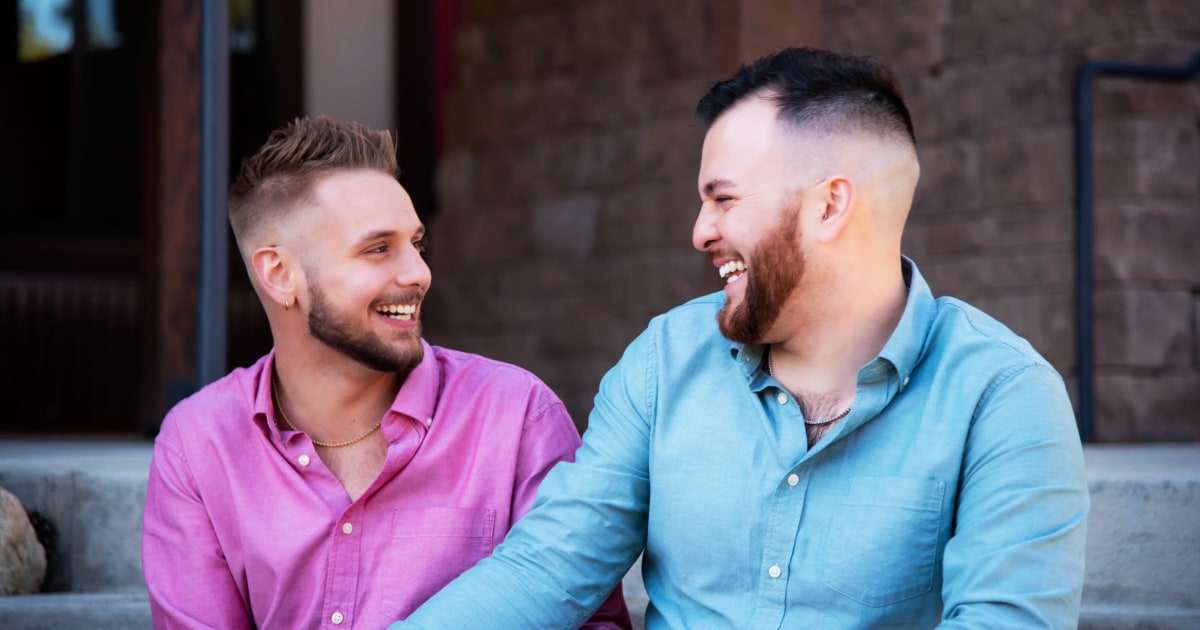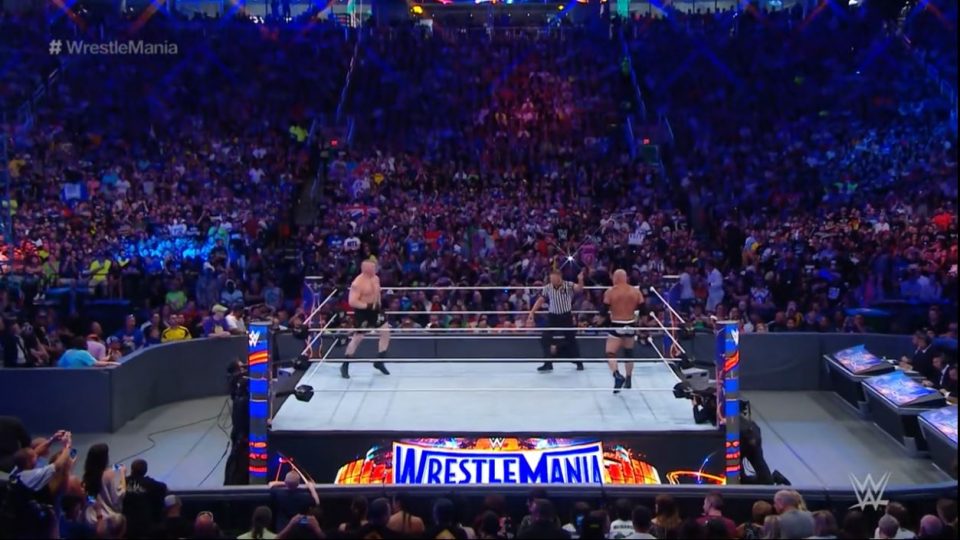
Plenty of couples think they’re made for each other, but Denver husbands Reid Alexander and Rafael Díaz have medical proof.
When Alexander, 24, needed a new kidney, Díaz, 28, turned out to be an ideal donor for the lifesaving organ.
“It just feels like it was meant to be,” Díaz said.
Alexander had been diagnosed at 17 with Alport syndrome, a genetic condition that scars the kidneys and eventually leads to renal failure.
“It was definitely scary,” Alexander said of “being a teenager and thinking your kidneys are going to fail someday. I had to mature really fast and be focused on staying healthy.”
Alport syndrome is relatively rare, affecting 1 in every 5,000 to 10,000 people, or between 30,000 and 60,000 people in the United States, according to the Alport Syndrome Foundation.
It can also cause vision and hearing loss. As a result, Alexander has worn hearing aids since his senior year of high school.
After his diagnosis, he moved forward with his life — pursuing a Bachelor of Arts in fitness and wellness from Indiana University in Bloomington.
Then, in April 2020, as Alexander was readying to graduate, he got the call: His kidney function had dropped to 20 percent, and he was officially eligible for a transplant. He’d also need to start thinking about dialysis in the near future.
Even with that diagnosis hanging over his head, Alexander graduated from college and moved to Denver a few months later to begin a job as a fitness instructor working with kids.
A week after his move, Alexander went on the popular dating app Tinder and matched with Díaz, who had moved to the city from Mexico about 2 ½ years earlier.
On Aug. 23 of last year, the two met in person in a park. Both said there was an immediate spark — Díaz told KMGH he knew he was interested when Alexander understood his Spanish — and they have spent nearly every day together since.
“We have a lot of things in common, and we make each other laugh all the time,” Díaz said. “We always spend a lot of time in the kitchen or watching movies.”
Alexander said his condition came up fairly early in their relationship.
“We were cooking dinner, and Raf was putting salt in something — salt is one of the things I really have to be careful about,” he said. “So I told him not to do that, and he asked why. So I talked about it, and we talked about why I wear hearing aids and all that.”
Though they hadn’t been dating long, Díaz didn’t flinch. In fact, he asked to be tested as a potential donor almost right away.
“I was like, ‘No, no, that’s so amazing, but you don’t have to do that.’ I mean, we were only dating a short while,” Alexander said. “But he would keep talking about it. It felt like such a serious thing: You’re giving me your organ.”
In February, Alexander’s kidneys worsened, and he had to begin dialysis. The procedure is critical, but it is a major life disturbance, requiring three sessions a week lasting up to five hours each, he said.
“I haven’t really been able to hold a 9-to-5 job because of the dialysis,” Alexander said, which often caused him to return home drained of energy and feeling dizzy.
On April 9, Díaz and Alexander got married in a small courthouse ceremony.
Alexander’s health continued to decline, and he moved up the transplant list. That’s when Díaz said he was getting tested — whether his husband wanted him to or not.
“He really didn’t want me to do it!” Díaz said. “He was like, ‘No, no, you don’t have to.’ But I got tested anyway, and the doctors said we were a perfect match.”
Their hospital in Denver thought the surgery was too risky given the size of Díaz’s kidney, so the procedure was performed at Indiana University Health Methodist Hospital in Indianapolis, where Alexander had started his treatment for Alport syndrome as a teen and where his parents could help with the couple’s convalescence.
On Aug. 13, almost exactly a year after that first date in the park, one of Díaz’s kidneys was implanted in his husband.
“To know that someone is doing this incredible thing for you, and it’s someone you love, is really an amazing feeling,” Alexander said.
Both the extraction and transplant surgeries went smoothly, and, thanks in part to their youth and otherwise good health, Díaz and Alexander were out of the hospital days earlier than expected. They’re now recuperating at Alexander’s parents’ house in Kokomo, Indiana.
On Monday, five weeks after his operation, Alexander said his new kidney is working well, and he and Díaz are on the mend.
Hospital protocol requires the couple to stay in Indiana for three months, though, leaving them unable to work. In addition, they have to avoid driving and flying for six to eight weeks.
To make sure his body doesn’t reject Díaz’s kidney, Alexander is on medications that wipe out his immune system. That leaves him susceptible to almost any infection, with Covid-19 only adding another layer of concern.
“We have to be super crazy about washing hands and avoiding exposure to things because I don’t really have an immune system right now,” Alexander said.
He and Díaz have launched a GoFundMe to help cover rent and expenses, Alexander said.
Díaz said the toughest, though, has been stepping back from his role as caretaker during his convalescence. A nutritionist, he’s been active in maintaining Alexander’s health almost since they met.
“I took care of Reid before the surgery, and I will take care of this man for the rest of our lives,” Díaz said. “I want to take care of him right now, but it’s hard.”
Alexander said he’s still in shock about the sacrifice his husband made.
“Sometimes I forget,” Alexander said. “I mean, I know there’s a kidney in me now — it feels like a rock in my side. But I catch myself and think, ‘He gave me a kidney.’ It’s amazing. We’ve only been together a year, but we’ve always felt so connected, and now our bond is even stronger now. A part of him will always be with me.”
Follow NBC Out on Twitter, Facebook & Instagram
Denver husbands are 'a perfect match' in love — and kidneys - NBC News
Read More

No comments:
Post a Comment